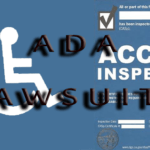Planning for your death can be a daunting thought, but it’s a reality we all have to face and should prepare for. To ensure that your loved ones will get the support they need, its best to make an estate plan.
In the state of California, there are default rules in place to protect the deceased and his or her assets. However, these are minimal protections based on traditional family relationships. There are many instances where a loved one would not be entitled to the deceased’s estate simply because he or she is not related by blood or the relationship has not been recognized by marriage or adoption. Furthermore, these rules are enforced by the Probate Court, whose expenses come out of your property and which can take a significant amount of time to process your estate.
The purpose of a Will or a Trust is to remedy these shortcomings and direct your property exactly where you want it to go. Both a will and a trust puts your wishes on paper, making it clear to the world that you have assets and you want them to go to specific places. Trusts also help save time and money for your loved ones by avoiding a tedious and lengthy probate process.
California Will
A will is a document that states your property and where you want it to go upon your death. If worded correctly and executed properly, it will trump any default rule.
A will takes effect at the time of death, but it is not automatic. The will must go through the probate process, which is the official proving of a will. This means that at the time of death, a probate court will review the will, determine if it is valid, identify the beneficiaries, and institute a process for disbursal of the assets.
If there are no substantial problems, the probate process takes a minimum of eight to twelve months. This includes the time is actually takes for a probate claim to be heard and also the waiting period for creditors to make a claim against the estate if any. However, between crowded courts, delays in filing, claims against the estate, and a myriad of other issues that may arise, the process could take much longer. For example, one client’s father, because of poorly drawn legal documents unrelated to the will, is still going through the probate process 3 years after his death.
In California, not all estates need to go through the probate process. Under the California probate code, the law allows for simple estates valued less than $150,000 to avoid probate. However, given typical California home values, few estates that include the family home will qualify. Qualifying estates must go through an application process.
In addition to the wait, the probate process is not free. Probate costs depend on the size of the estate. Expenses range from $4,000 for the first $100,000 up to hundreds of thousands of dollars for large estates. This cost is paid out of the estate itself.
California Trusts
A trust, like a will, is a legal instrument that identifies your assets and designates those assets to go to certain beneficiaries before and after your death. But unlike a will, a trust takes effect instantly at the time of death thereby avoiding probate all together.
With a trust, assets are placed in a fictitious entity (the “trust”). Technically, the trust will now hold legal title to all the assets placed in the trust. However, the terms of the trust allow you and your loved ones to enjoy the benefit of those assets, with or without restrictions, as determined by the type of trust. Once a trust is created, a person called a “trustee” manages the trust according to the instructions placed in the trust. For example: “the income from my rental property shall benefit my daughter Alex for ten years after my death, then give her the property.” Upon death, the trustee is responsible for paying out the income of the rental property to the beneficiary while the trust remains the legal owner of the property until ten years pass, when the beneficiary will get full ownership of the property.
The most common trust, usually called a “living trust,” is a revocable, transparent trust. Because it is revocable, you can revoke the trust at any time and get your property back. “Transparent” means that the trust, although it has a legal existence, is not evident in your day to day life – it is set up so that you can use your money and property just as you had before the creation of the trust.
There are many other types of trusts, each of which provide different benefits and consequences. For example, irrevocable trusts transfer ownership and control of the asset during the lifetime thus making the giving of the asset a life-time gift instead of a gift after death and charitable trusts benefit charities and can sometimes help avoid estate taxes upon death. Speak to an attorney about the pros and cons of each trust and what would best make sense for you as each trust carries different tax and control consequences.
Although it sounds like a trust has every benefit over a will, there are some drawbacks. First, a trust costs more to set up than a will. The law is very generous as to what constitutes a will – a handwritten note with your signature is sometimes enough (although it is best not to dispose of your property without legal advice). A trust, on the other hand, is a complicated legal document which could have serious consequences for you immediately if not written correctly. Professionals will charge more for a trust than a will. A trust must also be filed with the State and your property must be officially put inside the trust. If you do not keep up with your trust, when you pass, there could be significant property that is not in the trust and will have to go through the probate process.
In a nutshell, both wills and trusts provide for your loved ones after your death. They both ensure that your assets go where you want them to go. However, with a will, probate is almost always necessary if the estate is large enough. The cost of creating a simple will is relatively low and generally, no transfers or additional paperwork is required to effectuate your last wishes. On the other hand, creating a trust can help avoid the costs and time of probate but will require more cost and effort in initial set up. Trust creation requires placing your assets into the trust meaning you will have to transfer legal title of real property and other such property into the trust and you have to keep up the trust after it is created. Additionally, both wills and trusts should be reviewed regularly and modified as your life needs and property change.
The information on this website is for general information purposes only. Nothing on this site should be taken as legal advice for any individual case or situation. This information is not intended to create, and receipt or viewing does not constitute an attorney-client relationship. Please contact an attorney for your specific situation as all cases vary are require specialized attention.







